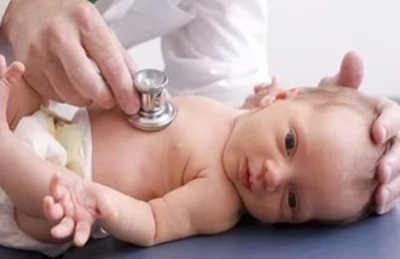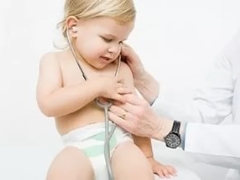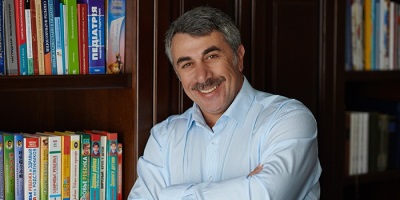Baby heart murmurs: reasons
Most parents are very attentive to the health of the baby, so the mention of the doctor that he heard during the examination in the children's heart some noise, especially in newborns, can cause anxiety and panic. In order to know what to do with a heart murmur, first of all moms and dads need to calm down and study the issue in more detail, in particular, what it is and whether the noise detected in the crumbs during the heartbeat is a noise to the health and life of the toddler.
Kinds
By its nature, a child’s heart may show:
- Systolic murmur - arises at the moment when blood from the heart during its contraction is pushed into large vessels. Such noise is often harmless.
- Diastolic noise - occurs at the time of relaxation of the heart, when it is filled with blood. Such noise is often pathological.
Depending on the reason for the appearance of noise in the children's heart, they are all divided into two large groups:
- Organic - associated with defects in blood vessels, valves or pericardium.
- Functional - arising temporarily due to the peculiarities of the growth of blood vessels and the heart in children.
Functional noise
Such noises are also called innocent, since they are not related to anatomical problems and are not dangerous to the health of the child. Functional heart murmur in a child is an age-related phenomenon, since it usually spontaneously disappears when the baby grows up.
Most of the noise of this group is characterized by low intensity, which may decrease or increase in a different period of growth of the peanut. Often, with functional noise, the child is not treated, but is periodically examined by a cardiologist. At the same time, no changes on the ECG and X-rays in children with functional heart sounds are detected.

The main causes of functional noise in a child's heart are such phenomena and situations:
- The current of venous blood to the heart. The sound in this case will be buzzing or murmuring, and its timbre and duration will vary in a different pose, for example, when the child is lying, such noise will not be heard.
- Transpulmonary acceleration. This reason will provoke the appearance of noise during intoxication or physical exertion, since at the same time the blood flow to the lung tissue will increase.
- Heart vibrations. If the child is thin, and his chest is thin, the doctor will hear the baby's heart vibrate.
- Different growth rate of the chambers of the heart or its valves. If the ventricle, valve leaflets, or atrium grows faster than other cavities and valves in the heart, this will also cause noise.
- Small heart abnormalities. Non-hazardous noise will be heard with the added chord and other types of MARS.
- Increase or decrease the tone of the heart muscle due to the effects of the parasympathetic or sympathetic nervous system.
- Disorder of metabolic processes in the heart muscle due to heavy loads or inadequate nutrition. Such a reason causes the child to develop cardiopathy or cardiac dystrophy, but both of these disorders are reversible, that is, if the cause is eliminated and the treatment is conservative, the problem disappears along with noise.
- Anemia. With the flow of blood in which the red cells and hemoglobin is less than the norm, anemic noise may occur.
Organic noise
These noises are a symptom of heart disease, both acquired and congenital. Often, their appearance is associated with the formation of incorrectly directed blood flow in large vessels or the heart. Their pedal is heard by the pediatrician in the form of noise, which in most cases is quite loud, occurs in diastole and is permanent.
The cause of organic noise is often:
- Rheumatism.
- Congenital heart defect.
- Myocarditis.
Causes at different ages
Babies
If a pediatrician listens for noise in the heart of a newborn, he must first exclude congenital abnormalities, because heart defects are quite common and are inferior in frequency to the occurrence of nervous system defects only. They are provoked by various negative effects on the pregnant in the first months of gestation, when the fetus lays the heart and great vessels.
In babies, heart murmur is often associated with an unopened oval window that functions for some time after birth. This window is important for intrauterine circulation and normally overgrown by the age of 1-2 years, but even in children aged 3 years or older, the open window is not considered a congenital defect, calling it an individual feature for a particular child.
In the first or second month of life, the noise in the heart of the baby can be associated with the active arterial duct. Such a vessel also participated in the intrauterine circulation, and after birth, it normally closes during the first days of life, although babies who were born prematurely, for example, after a caesarean section, are considered to have a normal closure period of 2 months.
Children older than a year
In infants from 12 months to 6-7 years old, both innocent noises due to physiological and non-dangerous causes, such as the presence of MARS or the thinness of a child, and pathological noises indicating quite serious pathologies can occur.
Especially dangerous situation is the emergence of noise in the heart of the crumbs after a recent infection, as, for example, in case of sore throat or scarlet fever the bacteria affect the crumbs of the heart, causing a rather serious disease - rheumatism.
If, at the age of 3 years, the pediatrician listens to the systolic murmur that occurs at the time of contraction of the heart, changes in character when the body position changes, is inconstant and fairly quiet, this noise is often functional.
Students
Quite often, the causes of functional noise in children of school age is an unbalanced diet or an excess of physical activity, as a result of which the myocard does not receive the necessary nutrients and oxygen. In addition, quite active growth at the age of 6-10 years causes a discrepancy in the size of the heart bag, which can also be manifested by noise.
Teenagers
Functional noise arising in adolescence is often associated with innervation of the heart, when a child has an imbalance in the influence of one of the nervous system (vegetative or sympathetic). Over time, this imbalance is evened out and the noise disappears. However, in adolescents, organic noise, which appears due to an inflammatory disease of the myocardium or other cardiac pathology, is not uncommon.
What to do
In order to determine whether the heart murmur is caused by age-related changes in the baby’s body or it is a manifestation of a serious illness, you need to consult a pediatric cardiologist and undergo an instrumental examination. This will establish the exact cause of the noise and confirm or eliminate the diagnosis. Depending on the results, the child will be assigned to one of the following groups:
- Children who are practically healthy.
- Children who need supervision.
- Children who should be planned or urgently treated.
Diagnostics
For examination of children with a heart murmur, use:
- Echocardioscopy. Using ultrasound, the doctor visualizes the cavities of the heart, its valves and large vessels, revealing contractions, growths, enlargements, doublings and other pathologies.
- Electrocardiogram. This study identifies problems in the heart, in particular, rhythm disturbances and hypertrophy of the chambers.
- X-ray. Such an examination will show the borders of the heart, as well as the state of the lungs.
Opinion Komarovsky
The well-known pediatrician confirms that heart murmurs are detected in very many children, and the task of the physician should be competent differential diagnosis, after which it will be clear whether this symptom is a short-term age-related phenomenon or appeared due to illness.
Komarovsky focuses on the fact that with a normal state of health of the child and the absence of complaints, to worry about noise in most cases not needed. If the child behaves restlessly, he has shortness of breath, blue around the mouth, fever, complaints of chest pain, a crumb lags behind in development and is not gaining weight well, according to Komarovsky, this is the reason for immediate treatment to the doctor.
Treatment
The actions of the doctor who detected a murmur in the heart of a child will depend on the cause of the symptom. If a detailed examination eliminates organic lesions of the heart and the child has no complaints, treatment is not indicated. In the same situations, when the noise is manifested due to some kind of cardiac pathology, the tactics will depend on its severity.
In compensated cases, drug therapy is often prescribed. In this case, drug treatment in the presence of noise in the heart is mainly aimed at improving the nutrition of the myocardium and metabolic processes in the heart muscle. A child may be given vitamins, amino acids, glycosides, and similar agents. If necessary, diuretics or hormonal agents are prescribed to the baby.
If the noise in the children's heart is triggered by serious defects, most often resort to surgical treatment. During surgery, depending on the pathology, the valve can be prosthetic, pinch the vessel, insert a stent, remove excess tissue, and so on. In the postoperative period, the child is prescribed medications for blood thinning and other treatment, which accelerates rehabilitation and prevents the occurrence of complications.
Parents whose children have a heart murmur should not panic. Perhaps the reason for the rapid active growth of the child, and the problem will soon leave itself. But the child in any case, you must show the doctor and go through all the examinations. And in the next video, an experienced pediatrician will talk about the possible causes of heart murmurs, their treatment and diagnosis.
















